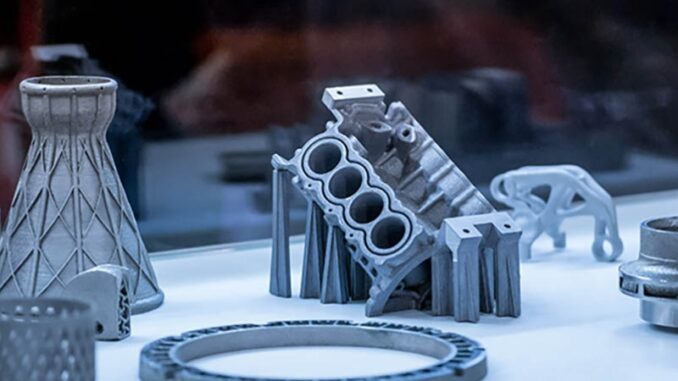
Additive manufacturing (AM) plays a significant role in simplifying supply chains, particularly through localized manufacturing.
Here’s an in-depth look at how AM impacts supply chain simplification and the advantages of localized manufacturing:








Supply Chain Simplification
Reduced Dependency on Global Suppliers
Minimized Supply Chain Complexity: By producing parts and components locally, companies can reduce their reliance on a complex web of global suppliers. This simplification reduces the risk of disruptions caused by geopolitical issues, natural disasters, or transportation delays.
Decreased Lead Times: Local production shortens the time required to obtain parts, as they no longer need to be shipped from distant locations, thus speeding up the overall manufacturing process.
Lower Inventory Levels
On-Demand Production: AM allows for parts to be manufactured as needed, reducing the necessity to hold large inventories. This just-in-time production model minimizes storage costs and reduces the risk of inventory obsolescence.
Customized Inventory: Companies can produce small batches or even single units of custom parts, eliminating the need for overproduction and excessive stockpiling.
Streamlined Logistics
Reduced Transportation Costs: Localized production means shorter transportation distances, resulting in lower shipping costs and reduced carbon emissions.
Simplified Distribution: Fewer links in the supply chain mean fewer opportunities for logistical errors and delays, leading to more reliable and predictable delivery schedules.
Enhanced Supply Chain Resilience
Flexibility and Agility: AM’s ability to quickly adapt to design changes and produce parts on demand makes the supply chain more responsive to market fluctuations and unexpected disruptions.
Redundancy and Risk Mitigation: By decentralizing production and establishing multiple localized manufacturing hubs, companies can mitigate risks associated with single points of failure in the supply chain.
Localized Manufacturing
Proximity to End Users
Customization and Responsiveness: Being closer to the end users allows manufacturers to better understand and respond to customer needs, providing highly customized products with shorter lead times.
Enhanced Customer Satisfaction: Faster delivery times and the ability to quickly incorporate customer feedback into the design process improve overall customer satisfaction.
Economic Benefits for Local Communities
Job Creation: Establishing local manufacturing facilities creates jobs and stimulates economic growth in local communities.
Support for Local Businesses: Localized manufacturing can boost the local economy by engaging with and supporting local suppliers and service providers.
Environmental Sustainability
Reduced Carbon Footprint: Local production significantly cuts down on transportation emissions, contributing to a lower overall carbon footprint for the manufacturing process.
Sustainable Practices: AM often uses less material and produces less waste compared to traditional manufacturing, further enhancing the environmental benefits of localized production.
Innovation and Development
Collaboration and Knowledge Sharing: Proximity to research institutions, universities, and other innovative companies fosters collaboration and accelerates the development of new technologies and processes.
Rapid Prototyping and Testing: Localized AM facilities can quickly produce and test prototypes, speeding up the innovation cycle and time-to-market for new products.
Enhanced Supply Chain Control
Direct Oversight: Manufacturers have better control over production processes, quality assurance, and inventory management when production is localized.
Customization and Flexibility: Local facilities can easily adjust production runs to accommodate changes in demand or design, providing greater flexibility and responsiveness.
Real-World Examples and Applications
Automotive Industry: Car manufacturers can produce custom parts and prototypes locally, allowing for rapid iteration and reduced lead times in the development process.
Aerospace Industry: Aerospace companies can manufacture critical components near their assembly plants, ensuring timely delivery and reducing the risk of supply chain disruptions.
Healthcare: Medical device manufacturers can produce custom implants and prosthetics on demand, tailored to the specific needs of patients in local hospitals and clinics.
Consumer Goods: Companies can create personalized products such as custom footwear, eyewear, and accessories, providing unique value propositions to their customers.
Localized manufacturing through additive manufacturing significantly enhances supply chain efficiency, resilience, and sustainability while providing economic and innovation benefits to local communities.

Leave a Reply